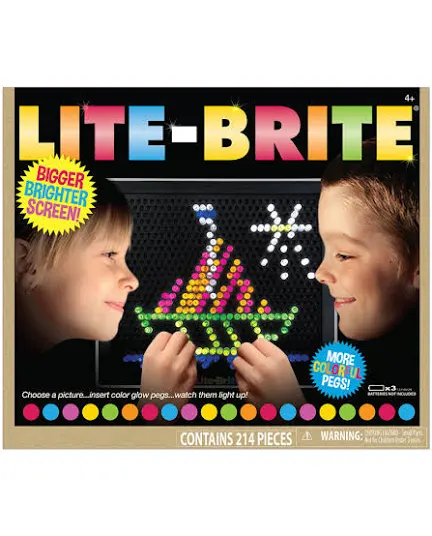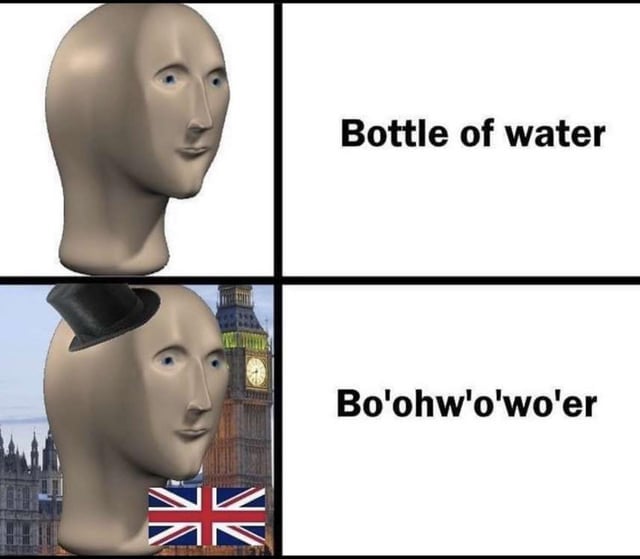On the one hand, a sign like this definitely did have enough room for the full spelling of “through”. There seems to be no reason to abbreviate it.
On the other hand, isn’t drive-thru just, like, its own noun now? Part of me thinks this was always spelled correctly.
It seems like shorthand for signs that has been used enough that it’s basically normal now, like “lite” instead light, or “donut” instead of doughnut.
Right, the distinction I’m making is this isn’t just “normalized” but actually the correct spelling. As in, if a newspaper editor saw it written as “drive-through” they would be obliged to correct it.
Suppose both aight?
A drive-through or drive-thru (a sensational spelling of the word through), is a type of take-out service provided by a business that allows customers to purchase products without leaving their cars.
Sensational spelling is the deliberate spelling of a word in a non-standard way for special effect.
I still call it an air-port.
All my homies call them aerodromes.
My kid calls it a plane station and frankly it’s growing on me
I’m down for that
Or we could go with train-port.
I’m gonna take a ride in a aero
“I would like to send this letter to the Prussian Consulate in Siam by aeromail. Am I too late for the 4.30 autogyro?”
deleted by creator
How about a nite-lite?
The correct way would be “drive-through.”
“Drive-thru” is purposely spelled wrong to attract attention. The same as “Krispy Kreme” or “Dunkin’ Donuts.” It’s only “correct” in that it has become ubiquitous through usage.
It’s only “correct” in that it has become ubiquitous through usage.
What you are describing is called “language”
“You” wasn’t always allowed to be singular. Colour vs color. Doughnut can be donut. Etc. Languages evolve over time, and “drive-thru” is in plenty of dictionaries.
Yup, “drive through” is an instruction, “drive-thru” is a noun. So you’ll drive through the drive-thru.
Pretty sure thru is to save space.
Yup, esp since it’s often written on the pavement.
“lite” has a different meaning (or at least connotation) to “light”

I can hear the commercial in my head…
Ohh I thought donut was the American spelling of doughnut.
We spell it both ways.
Yup, doughnut if you’re being fancy, donut if it’s some trash from the grocery store.
Not necessarily. Some hole in the wall serving the best damn breakfast pastries our country has to offer is gonna call it a donut. A donut is a working class doughnut.
Yup, fancy is usually less tasty IMO. I prefer the ghetto donuts at our grocery store to the fancy doughnuts at the fancy bakery.
It is.
Donut is straight up just another way to spell doughnut, though. It’s fully accepted, and not shorthand.
deleted by creator
According to Merriam Webster, “thru” is an acceptable, albeit less common, variant of “through”. https://www.merriam-webster.com/dictionary/thru
Dictionaries are descriptive, not prescriptive. They don’t decide if something is “acceptable”, just if it is widely used enough to report. If a mistake becomes common, it will enter the dictionary.
Maybe they meant, only drive on Thursday?
Don’t get me started on “donut” instead of “doughnut”.
Deez nuts are my favorite
Surely you mean doughknot?
How do you feel about hiccough?
A little bit angry.
“Donut.”
Oh I will. (─ ‿ ─)
I wonder what the Venn diagram of prescriptivists and graffiti artists is
Yes.
Wy do yu insist so strongly on writing thre mor letters that do nothing to chang the pronunciation of the word? Ar yu French?
If ther’s on thing I hat, it’s words ending with silent e’s. And whil we’r at it, we ned to get rid of doubl e’s as well.
I don’t mind silent e’s, they do actually change the way words are pronounced at least.
They work like an e after a vowel, making it a long vowel, but with a letter in between. They have absolutely no reason to exist as haet is pronounced the same as hate but has the letters in a more logical order.
haet would be pronounced “heat” like in “haemoglobin” and “haematoma”
The ae in haemoglobin is pronounced like the a-e in hate.
No. ˈhē-mə-ˌglō-bən https://www.merriam-webster.com/dictionary/hemoglobin#medicalDictionary
You linked a diffent word. However, a quick google shows that the Brits and Americans pronounce it like you are saying. Over here in aus I’ve only heard it pronounced the way I said it was pronounced.
Magic Es they taught them to me as. Come to think of it as an adult a magic e could mean something entirely different…
If they are silent, they don’t chang the pronunciaton, becaus if they do they are not silent.
In that persons comment, they removed several “silent” e’s, but all but one changed the word’s pronunciation. I was talking about them. Like the E in hate. It doesn’t make a sound itself, so isn’t it still silent?
It’s not silent, but in the wrong place. Haet would be more correct, as it changes the pronunciation from [hæt] to [heɪt]. Hait might be an even better way to write it (see also: bait, maid, laid etc.)
English is a weird language.
English is three languages wearing a trench coat and pretending to be one.
[Off topic:]
I just now realized that the word “trench” is in “trench coat”.
[…] heavy-duty fabric,[1] originally developed for British Army officers before the First World War, and becoming popular while used in the trenches, hence the name trench coat.
I don’t get it - what about “trench” being in “trench coat” …?
Dubl e’s mak sens thou. Ther’s a diffrenc between feed and fed, or between need and Ned. The dublin maks the E longer.
No, the doublin makes the [e] into [i:].
So we should write fiid and niid then? In German, if you wanted a word that’s pronounced like the English need, you’d write nied.
Anyhow, just removing the second e without replacement would not help in knowing how to pronounce the word by reading it.
Nah, let the native speakers decide how they want to write their language. I just wanted to take a bit of a jab towards how messed up their vowels are.
I agre. It maks no sense.
Americans don’t like “ou” in their words.
So it is thereby, by law, and without question, “Drive throgh”.
“withot”
That’s Canadian
Drive throo.
Drive true
Drive threw
Drive thro
Drive throo.
Drive thru. This is actually a common spelling in the US.
Yeah but they don’t spell “colour” as “colur”.
If you want to be more accurate it is a Drive Next to, unless you drive through the building to get your food.
Oil change places where you don’t get out of your car are drive through, everywhere else is a drive next to.
You drive through the line not the building
You mean you drive along the line not through it.
Car washes too!
I would go with “Drive Around”, over drive next to, but I pedantically agree.
The etymology follows the drive-in which is basically a big parking lot you drive in to, do your ordering/eating/movie watching in your car, and then you drive out. And when you don’t stop in the middle of a drive in, but instead you continue through it, in your car, it became a drive through.
The pedantic term is a drive-up, btw.
For a moment, I thought, this was a misprint and they had to officially get out a spray can to complete the word…
Loved the show Dress to Kill by Eddie Izzard. He thought thru was much better than through coming to the conclusion that through should be pronounced like thruff.
You say erbs, and we say herbs. Because there’s a fucking h in it.
I don’t think the British need to pick the “who’s worse about skipping letters” fight. Lol

The only reason you pronounce the H is because at some point the brits decided dropping the H made you sound low class. So congrats on perpetuating the elitism
I was quoting the stand up set.
Yeah I should have put a /s on mine, I don’t actually think you were being elitist
“through” is just cheating at Scrabble
do you have a flag?
My father used to tell me that ghoti was pronounced “fish.”
GH as in rough,
O as in women,
TI as in ration.
Yup. That’s a pretty common one to explain the whimsy of the English language
That’s not how any of that works.
It is phonetically how it works.
No it isn’t. The letters “gh” doesn’t make the “f” sound without the full “ough”, you can’t just take some of the letters out. Same with the “ti” in “tion”. In addition, words trace their pronunciation from their origin. Words ending in “tion” are latin-derived, and shares an origion with “sion” (Mission, passion) and cion (suspicion). The reason that “ough” sometimes has an “f” sound is that originally it had a glottal stop, like the word “loch” in Scottish, but over time that glottal stop slipped and became an “f”.
The point is, while certain letter sequences have surprising pronunciations in English, you can’t just take those weird pronunciations out of context and create a new word. And you certainly can’t say that “ghoti” is pronounced “fish”.
there are two “l”'s in cancelled, i will die on this hill…/s
Merica gave England that other L.
language, though imprecise… brings a methemetician’s paradise
I’m in the same boat when it comes to gasses and busses.
Darn. They missed the hyphen.
Ah, yes, the drive thro-ugh
*facepalm
Ugh, not again
Kinda sad where you live in a state where every little misspelling or mangled punctuation causes such stress.
that’s why I got out of California
Go to Georgia. You can just make up your own pronunciation to things and people will just roll with it
How about drive throo?
Sounds Canadian.
Just a quick reminder that dictionaries are descriptive, they document existing language use rather than set down rules.
If enough people break an existing rule often enough, it makes it into dictionaries. Just ask anyone who doesn’t think that “ironic” should mean “coincidental”.
Lexicon is pretty important.
Sure.
It’s just that some people see a dictionary entry and take it as gospel truth.
Literally
I was with you until the end, but I refuse to let Alanis Morisette order the dictionary around!
Also: Aluminium.
Aluminum came before aluminium.
Alumium came before that!
…shoulda just left it at that.
I’ll drink to that.
Weird that Americans want to go with Aluminum when there’s also Americium, Berkelium, and Californium. Not to mention Deuterium, Helium, Iridium, Lithium, etc…
I think most of us actually prefer the British spelling / pronunciation. But it is what it is.
If we’re going to be consistent with other elements, it should be Aluminum, that way it matches Molybdenum and Platinum, the only 2 other elements ending in “um” (please don’t check this).
Drive-thru
Hi-way
Tonite
Rite
These spellings are extremely pervasive at my workplace and they drive me nuts. Granted, many people there are non-native English speakers. But that just means the people teaching them English are doing it wrong.
Do you spell “to-day” with a hyphen too? Because that’s how it used to be, therefore it is correct
























